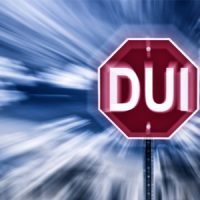How Effective Is Emma’s Law at Preventing DUI Car Accidents?

Whenever you see a law with a person’s first name in its title, it means that somewhere there is a family that will miss their child for the rest of their lives, even as the law protects other children from suffering a similar fate to theirs. For example, the Amber alert is named after Amber Hagerman, who was murdered in Texas when she was nine years old. In South Carolina, Emma’s law fits into that category of laws. Its purpose is to prevent other people in South Carolina from suffering something similar to what happened to Emma. Critics of Emma’s law say that it does not go far enough to prevent drunk driving, even though it does specify measures to stop people with previous DUI convictions from getting behind the wheel while drunk. Whether or not the drunk driver who caused your injuries was charged with a crime in connection to the accident, contact a South Carolina car accident lawyer to discuss the remedies available to you in a civil case.
Emma’s Law: A Legislative Effort at Preventing Drunk Driving in South Carolina
The namesake of Emma’s Law is Emma Longstreet of Lexington County. She died at age six as a result of a car accident in which a drunk driver crashed into her family’s car on New Year’s Day in 2012. The driver who caused the accident had a previous arrest record for DUI. Emma’s family, along with organizations that aim to prevent drunk driving, persuaded the South Carolina legislature to pass a law expanding the mandatory use of ignition interlock devices in DUI cases. The law, known as Emma’s Law, went into effect, in 2014.
Emma’s Law stipulates that criminal courts must require defendants convicted of DUI to install ignition interlock devices on their cars if they had a blood alcohol content (BAC) of 0.15 or higher during the incident for which they were charged with DUI. A BAC of 0.15 is considerably higher than the legal limit, which is 0.08. An ignition interlock device is a breathalyzer attached to the car’s ignition. The driver must blow into the device, and his or her BAC must be below the legal limit, or else the car will not start. Unlike earlier DUI laws, Emma’s Law requires ignition interlock devices even for first-time DUI convictions.
Too Many Loopholes
Although Emma’s Law increases the likelihood that a person convicted of DUI will need to get an ignition interlock device on their car, critics say that South Carolina courts do not enforce the law properly. A report on more than 800 DUI cases in 2016 showed many cases in which the defendant had a BAC of 0.15 or higher but walked away from the case without an ignition interlock device. These cases involved plea deals where the prosecution dropped the DUI charge in exchange for the defendant pleading guilty to other charges, such as reckless driving.
Contact Us Today for Help
A plea deal might be able to make DUI charges disappear, but it cannot take away your injuries. A Columbia car accident lawyer can help you deal with the consequences of the accident that cannot be talked out of existence through legal gymnastics. Contact The Stanley Law Group for help with your case.
Resource:
guardianinterlock.com/blog/emmas-law-drunk-driving-regulations/
https://www.thestanleylawgroup.com/4-mistakes-to-avoid-in-your-car-accident-case/
